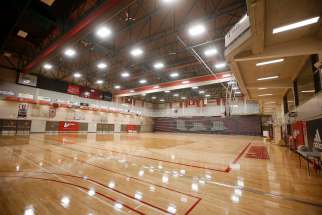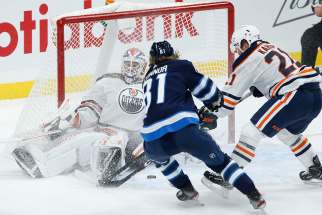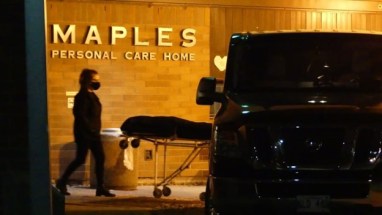U Sports faces many hurdles Canada West student-athletes holding out hope for 2021-22 season
Read this article for free:
or
Already have an account? Log in here »
To continue reading, please subscribe:
Monthly Digital Subscription
$0 for the first 4 weeks*
- Enjoy unlimited reading on winnipegfreepress.com
- Read the E-Edition, our digital replica newspaper
- Access News Break, our award-winning app
- Play interactive puzzles
*No charge for 4 weeks then price increases to the regular rate of $19.00 plus GST every four weeks. Offer available to new and qualified returning subscribers only. Cancel any time.
Monthly Digital Subscription
$4.75/week*
- Enjoy unlimited reading on winnipegfreepress.com
- Read the E-Edition, our digital replica newspaper
- Access News Break, our award-winning app
- Play interactive puzzles
*Billed as $19 plus GST every four weeks. Cancel any time.
To continue reading, please subscribe:
Add Free Press access to your Brandon Sun subscription for only an additional
$1 for the first 4 weeks*
*Your next subscription payment will increase by $1.00 and you will be charged $16.99 plus GST for four weeks. After four weeks, your payment will increase to $23.99 plus GST every four weeks.
Read unlimited articles for free today:
or
Already have an account? Log in here »
Hey there, time traveller!
This article was published 27/01/2021 (1782 days ago), so information in it may no longer be current.
This is typically a time of year when a university’s athletic facilities are full of activity.
From morning till night, if you walk into Duckworth Centre or Investors Group Athletic Centre in January you’re going to hear the sound of sneakers squeaking and balls bouncing on the hardwood.
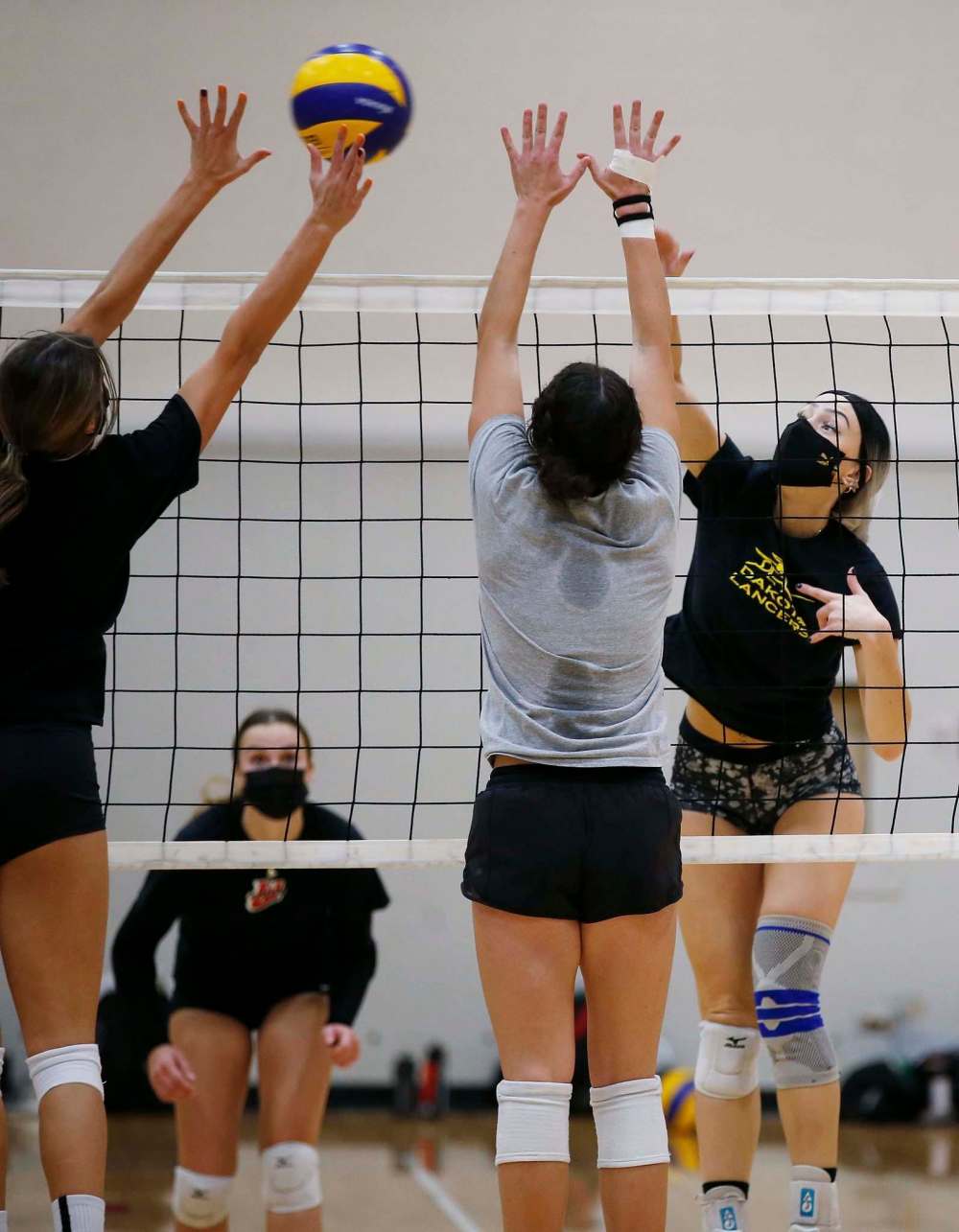
Head over to the Max Bell Centre, which is attached to the IGAC, and you’ll see the University of Manitoba Bisons hockey teams on the ice preparing for the upcoming weekend’s double-header. As for the football and soccer fields, yes, they may be covered in snow, but make a trip to the weight room and you’re guaranteed to find student-athletes of all sports pushing themselves in preparation for competition.
It goes without saying at this point, but this January, as well as the past nine months, and likely many more months to follow, look absolutely nothing like this.
Never mind playing a season; at this point, Bisons and University of Winnipeg Wesmen athletes are just hoping they can gather for an in-person practice in the near future. Instead of travelling across Western Canada playing the game they love, the local student-athlete experience has been stripped down to home workouts and Zoom calls with their teams.
The light at the end of the tunnel is the expectation that a 2021-22 season will be played. In order for that to happen, Canada West and its member schools, including the Bisons, Wesmen and Brandon University Bobcats, face many hurdles.
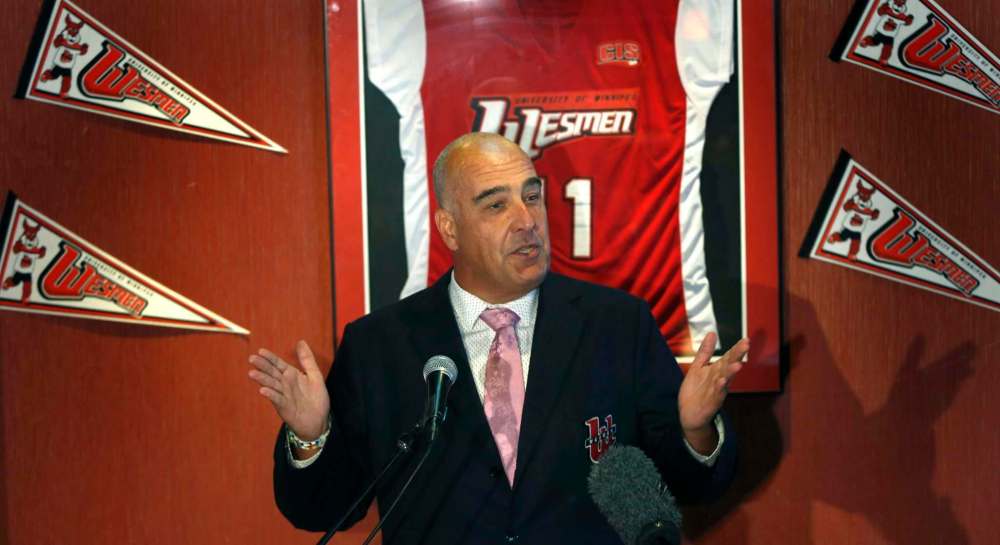
“One of the biggest problems with Canada West as a conference is the fact that it spans across four provinces and three time zones. I think for any amateur league in the world, we play in the largest geographical landmass. It’s insane what we try to accomplish as a conference,” said Wesmen athletic director Dave Crook.
“I’ve always been a proponent of regional play. I think regional play would be good for us to do as a conference… It’s a big, big geographical space to move people around in and I’m hoping at some point we’ll look to that and we become much more regionalized. I’m not saying I want to go back to the GPAC (Great Plains Athletic Conference), but at the same time, I think the more times we’re playing Brandon, Manitoba and even the University of Saskatchewan, it would be better I think not only for the fan base, but I think it’s better for the budgets and I don’t think it hurts our student-athlete experience.”
That approach won’t work for every sport, most notably football as there’s only six teams, unlike basketball, which boasts 17, but Canada West managing director Rocky Olfert said it’s almost a certainty that regional play is where the conference is headed this year. The conference recently created a committee of athletic directors that has been given the task of creating a variety of 2021 game schedules for all sports, as there’s no guarantee where the country will be with the virus in the fall.
“Yeah, I’m pretty confident (the programs) will be the same as it was prior to COVID. Again, that could always change, and it has changed from year to year and our members have the right to do so. Each member is experiencing these challenges separately.”–Canada West managing director Rocky Olfert
In May 2020, Canada West proposed a reduced schedule with less travel for the 2020-21 fall sports campaign. But as cases began to rise, the idea was axed in October and the season was cancelled. But even if that idea did go through, the University of Alberta, a conference powerhouse, announced in mid-June they were opting out due to financial reasons. Without student fees, a major source of funding for university sports, the U of A lost $600,000 of its budget in the first week of June. In a typical down year, the U of A has seen its budget slashed by $30,000-$40,000, which is considered to be a major cut. Add in no revenue-generating events and the fact the province hit the school with a reduction amounting to $110.3 million over two years that they were expecting to receive in the Campus of Alberta Grant, and the U of A had no choice. Some schools had to eliminate programs entirely, as the University of Lethbridge decided in April to drop its men’s and women’s hockey programs.
Olfert told the Free Press on Wednesday that he doesn’t expect to see any more programs get cut, but there’s no guarantees.
“Yeah, I’m pretty confident (the programs) will be the same as it was prior to COVID. Again, that could always change, and it has changed from year to year and our members have the right to do so. Each member is experiencing these challenges separately,” said Olfert in a phone interview from Abbotsford, B.C.
“They have different platforms of fundraising and different platforms of support to their programs. It certainly could change and we’re hoping the same number of teams and participants will return as years past, but again, members need to do what’s best for their programs.”
This isn’t the NCAA, which managed to bring in US$519 million of total revenue in 2020 (down from the US$1.18 billion they earned in 2019). Canada West schools aren’t making the big bucks on ticket revenue and there’s no TV deal to bail them out. Student fees, sponsors, kids’ sports camps and events — such as the U Sports men’s volleyball national championship that the U of M was supposed to host last March before it got cancelled at the last minute — is how the bills get paid. The Wesmen and Bisons haven’t thrown in the towel on any of the sports programs to make up for these losses like Lethbridge, but that doesn’t mean they’re not feeling the sting.
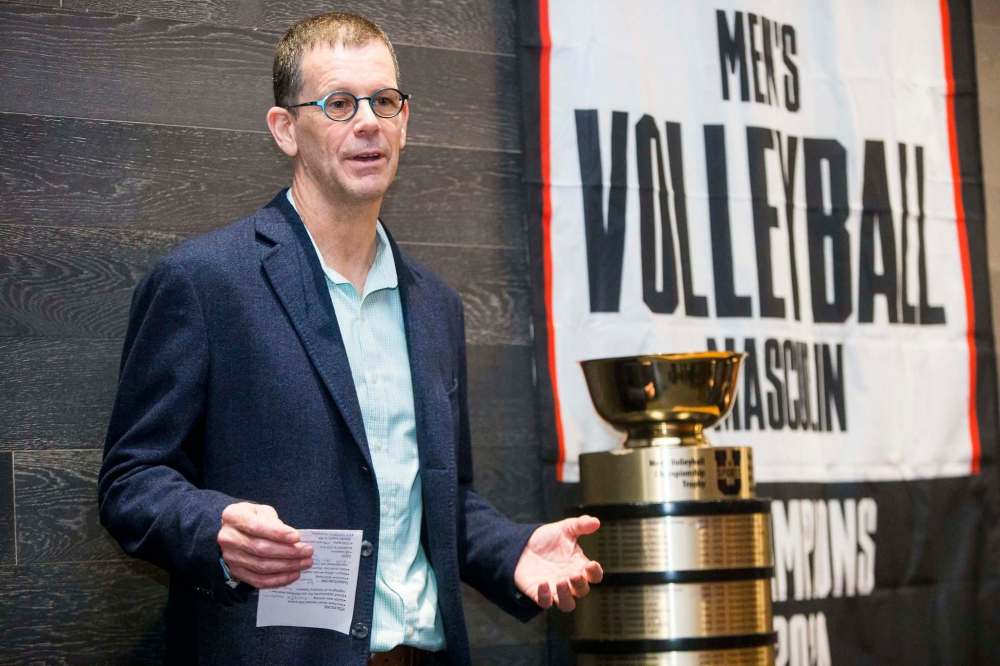
“In terms of cuts, Bisons Sports has been cut by more than 50 per cent in the time of COVID… which has led to staffing layoffs, which has led to team budgets being slashed, support being slashed… It’s just enough for us to maintain some base level of operations and to provide supports to student-athletes: mental, physical and nutritional… That situation will probably persist until fall next year,” said Gene Muller, the director of athletics and recreation at the U of M.
“Certainly, the hope is we’ll return to normal in terms of sports and rec fee allocation. But I understand it’s going to be COVID contingent. If students aren’t back in university, I think it’ll be hard to expect 100 per cent funding for sports. If students are back in classes and there is a normal resumption of classes, I would hope we’d have a normal resumption in funding.”
With all the financial issues caused by the pandemic, not everyone is cheering for sports funding to return to normal. The argument against it is louder now than it likely has ever been, due to schools bleeding across the board. Bisons men’s basketball coach Kirby Schepp hopes people see university sports as more than just kids playing games.
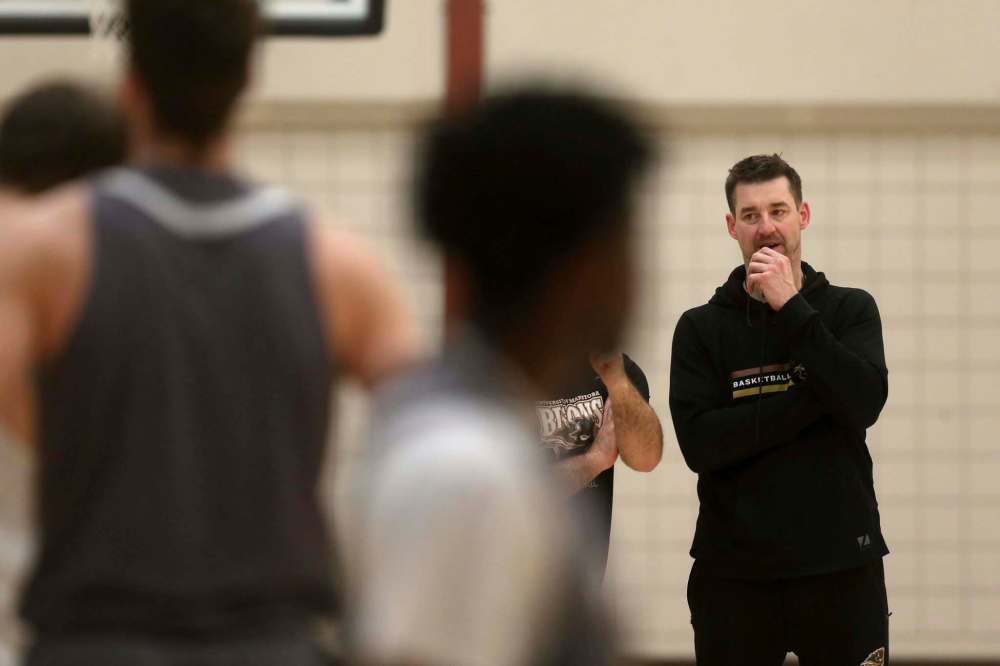
“I’ve always looked at university sports as, you know, like the faculty of nurses is training nurses, the faculty of engineering is training engineers, the faculty of law is training lawyers… but I feel like sport, what we’re doing is developing leaders,” said Schepp.
“I think that’s a pretty crucial component and crucial role that we have in the university’s function. Sport is developing leaders and I hope that’s still valued.”
Funding is just one of many concerns that coaches like Schepp have moving forward. Building a roster is going to cause headaches as teams will have two freshman classes coming into their programs this fall. But there won’t be many opportunities for these athletes coming out of high school as the 2020 cancelled season didn’t count as a year of eligibility for U Sports athletes, meaning teams will likely be loaded with veterans. Finding a way to earn minutes to get onto the court, field or ice is one thing, but Schepp’s biggest worry is the health of players.
You can do all the home workouts and drills you want, but it isn’t the same as high-level competition.
“Athletes that have been stagnant for a year in some cases, they’re going to try to jump into sport immediately,” said Schepp.
“I have some real concerns about injury risks that can happen there and them just not having their bodies ready.”
taylor.allen@freepress.mb.ca
Twitter: @TaylorAllen31

Eighteen years old and still in high school, Taylor got his start with the Free Press on June 1, 2011. Well, sort of...
Our newsroom depends on a growing audience of readers to power our journalism. If you are not a paid reader, please consider becoming a subscriber.
Our newsroom depends on its audience of readers to power our journalism. Thank you for your support.
History
Updated on Wednesday, January 27, 2021 8:15 PM CST: Fixes typo.





